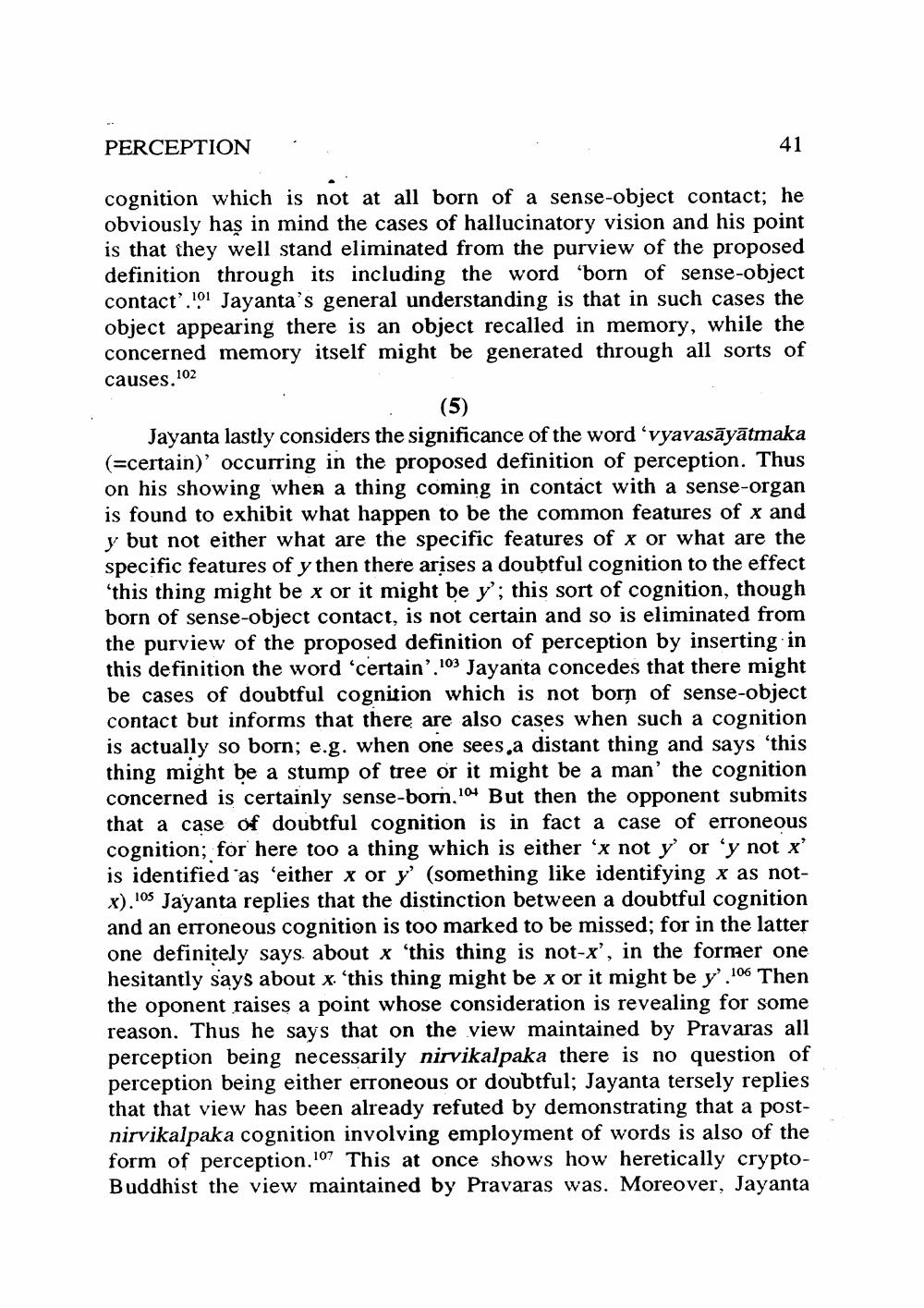________________
PERCEPTION
41
cognition which is not at all born of a sense-object contact; he obviously has in mind the cases of hallucinatory vision and his point is that they well stand eliminated from the purview of the proposed definition through its including the word 'born of sense-object contact. 101 Jayanta's general understanding is that in such cases the object appearing there is an object recalled in memory, while the concerned memory itself might be generated through all sorts of causes. 102
(5)
Jayanta lastly considers the significance of the word 'vyavasāyātmaka (=certain)' occurring in the proposed definition of perception. Thus on his showing when a thing coming in contact with a sense-organ is found to exhibit what happen to be the common features of x and y but not either what are the specific features of x or what are the specific features of y then there arises a doubtful cognition to the effect 'this thing might be x or it might be y'; this sort of cognition, though born of sense-object contact, is not certain and so is eliminated from the purview of the proposed definition of perception by inserting in this definition the word 'certain'.103 Jayanta concedes that there might be cases of doubtful cognition which is not born of sense-object contact but informs that there are also cases when such a cognition is actually so born; e.g. when one sees a distant thing and says 'this thing might be a stump of tree or it might be a man' the cognition concerned is certainly sense-born 10+ But then the opponent submits that a case of doubtful cognition is in fact a case of erroneous cognition; for here too a thing which is either 'x not y' or 'y not x' is identified as 'either x or y' (something like identifying x as notx).105 Jayanta replies that the distinction between a doubtful cognition and an erroneous cognition is too marked to be missed; for in the latter one definitely says about x 'this thing is not-x', in the former one hesitantly says about x. 'this thing might be x or it might be y.106 Then the oponent raises a point whose consideration is revealing for some reason. Thus he says that on the view maintained by Pravaras all perception being necessarily nirvikalpaka there is no question of perception being either erroneous or doubtful; Jayanta tersely replies that that view has been already refuted by demonstrating that a postnirvikalpaka cognition involving employment of words is also of the form of perception 107 This at once shows how heretically cryptoBuddhist the view maintained by Pravaras was. Moreover, Jayanta




